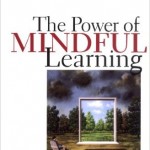It was in a previous blog post at the end of August that I first coined the term ‘Objectivity Training’. The reason I felt we needed a new term was because existing terms like ‘Critical Thinking’ didn’t really convey the breadth and the psychological depth of the kind of work we need to do to challenge all our biases and delusions. It’s not just a question of ‘thinking’ or reasoning, though that obviously comes into it.
Objectivity training is the name for an area of practice that needs to connect with our bodies and wider awareness of the conditions in which our beliefs arise, in addition to critical thinking. It is focused much more on our assumptions than on whether we are reasoning logically, because it is our assumptions that make much more of a difference in practice.
Since I wrote that first blog I have made a start on a new book called Objectivity Training, which will try to bracket out the philosophical arguments and just focus on this practical process. This book is undoubtedly going to take some time. I have also made some progress with the ‘Mistakes we make in thinking’ video series, and produced five of them so far. However, probably the most important development is a decision to develop training courses.
There is plenty of training on meditation available in many places these days, but very little working practically with the integration of belief and elimination of biases, so there is obviously a widespread need for objectivity training courses. These courses could help a very wide range of people in a variety of ways, such as the following:
- personal and spiritual development
- moral and political judgement
- study and research skills
- effective decision-making in businesses and organisations
I’ve arranged the first Objectivity Training course to take place in Malvern UK, near where I live, for an intensive 4 day block from 31st May-3rd June. Please see this page for more details and to book. But there is plenty of scope for developing and delivering courses of different kinds elsewhere. To be able to give this the time it deserves I’ve decided to try to make it part of my livelihood, hopefully in time taking over from some of the online tutoring I currently do. That’s why I’ve decided to offer this training independently rather than making it a society event, but the society committee has agreed that it can be advertised through the society.
In thinking further about how to present objectivity training I’ve recognised one new key distinction. That’s between the aspects of cognitive error (biases and fallacies) that apply to all judgements, and the specific biases and fallacies that apply to some judgements but not others. I have identified 15 dimensions of judgement that will always be present to some extent in every judgement, and will play a part in determining how far that judgement is either limited and deluded on the one hand or objective and adequate on the other. As these dimensions of all judgement are so widely important I have decided to focus all my initial work on them, and the book (or at least its first volume) and the Malvern training course will be focused on them.
To get some idea of how these different dimensions interact, let’s take an example judgement. Let’s say you get into a road rage scenario when driving a car. Let’s say another driver pulls out of a side street unexpectedly in front of you, you brake sharply and swerve to avoid him, and a car on the other side of the road is then forced to swerve to avoid you. You are enraged by this. Doesn’t this person know the Highway Code? He could have caused a serious accident etc. 
Let’s pause the situation there. It could develop in all sorts of ways: with everyone just driving off, with a reproving blast of the horn, with both drivers getting out and shouting at each other or even coming to blows. But your key judgement at that point is that the dangerous manoeuvre, with its dangerous consequences, was the fault of the other driver. It’s from that judgement that your anger flows. However, unknown to you, the other driver has just heard that his wife has been taken to hospital in a critically ill state. He’s in a distracted state and is desperately trying to get to the hospital as quickly as possible.
Your tendency to assume that the other driver is responsible can be related to the actor-observer bias in cognitive psychology, whereby we tend to assume that another person is responsible for an action with a bad outcome, whilst exculpating ourselves. The most obviously relevant dimension of the judgement here is thus that of responsibility. There is a lot of interesting psychological research on responsibility biases that can be applied here. It’s also worth noting, though, that every other judgement has this dimension even if it doesn’t at first appear to be particularly about responsibility. If we assume that we are powerless in making any judgement, for example, we fail to take responsibility for it and thus cannot work to improve it, even if it is a judgement about a ‘factual’ matter like a measurement of a length of guttering or the shortest route to a particular destination.
But this judgement about responsibility also involves many other dimensions. For example, it involves confirmation bias (which is the tendency only to look for evidence which reinforces our prior beliefs), because all your observations of the other driver are likely to be interpreted in terms of the irresponsibility you seek to place on him. For example, if you see a little ‘B’ on the car registration you might exclaim ‘Ah, should have known, the Belgians have the worst accident statistics in the EU!’, although it would never have occurred to you to consider the Belgian-ness of the car in that light otherwise. You will also be constructing a ‘reality’ about this driver, this irresponsible Belgian, which has little to do with the complexity of the actual person concerned: our tendency to construct a reality that is affirmed or denied is another feature of errors of judgement. In this case it is a ‘reality’ that includes stereotyping and hasty generalisation.
The judgement also has conditions ‘further back’ on which it relies – for example, it relies on availability – the limitation of ideas that will actually occur to us. It doesn’t occur to you that the hapless Belgian might be rushing to hospital in a distracted state – and there’s probably no way you were likely to guess this unless he stopped and told you (and you also listened). It doesn’t occur to you as a possibility because it’s not salient for you: it’s not part of the goals and representations you’re intent on at this moment. But if we were to slightly broaden our awareness there might be some chance in this situation that the possibility of an alternative perspective might occur to us. That might just take the form of a general thought that there was probably a reason why the driver of the Belgian car pulled out like that. Once that general thought occurs to you, perhaps because of mindfulness training as well as some awareness of your likely biases, the edge of your anger might be blunted and you might at least avoid fisticuffs on the pavement. That general thought need not undermine your awareness of the importance of care on the roads and following the Highway Code – but dwelling on a near-miss that was due to someone else’s actions is hardly likely to make much difference in practice at that point. It’s probably best to let go of the incident as quickly as you can, and a wider awareness of your biases can help you do that.
So, I’ve mentioned at least four dimensions of judgement there: responsibility, confirmation bias, constructions of reality, and availability. There’s a lot more I could say even about these, and there are 11 more dimensions in my analysis of each and every judgement. But I don’t want to prolong this blog unduly. That should be enough to give a taste of how objectivity training might work by making us more aware of the different dimensions of our judgements. The training itself would obviously involve more time devoted to each dimension (as well as the relationship between the dimensions), with a more thorough explanation of how each works, further examples, exercises applying the dimensions and discussion of how we can make balanced judgements about them. It’s a big job, but a very worthwhile job central to all of our lives.


